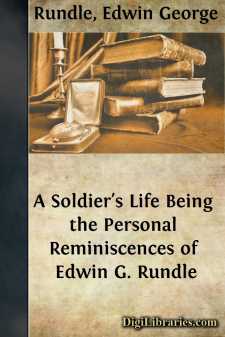Categories
- Antiques & Collectibles 13
- Architecture 36
- Art 48
- Bibles 22
- Biography & Autobiography 815
- Body, Mind & Spirit 144
- Business & Economics 28
- Children's Books 18
- Children's Fiction 14
- Computers 4
- Cooking 94
- Crafts & Hobbies 4
- Drama 346
- Education 58
- Family & Relationships 59
- Fiction 11833
- Games 19
- Gardening 17
- Health & Fitness 34
- History 1378
- House & Home 1
- Humor 147
- Juvenile Fiction 1873
- Juvenile Nonfiction 202
- Language Arts & Disciplines 89
- Law 16
- Literary Collections 686
- Literary Criticism 179
- Mathematics 13
- Medical 41
- Music 40
- Nature 179
- Non-Classifiable 1768
- Performing Arts 7
- Periodicals 1453
- Philosophy 65
- Photography 2
- Poetry 896
- Political Science 203
- Psychology 44
- Reference 154
- Religion 515
- Science 126
- Self-Help 85
- Social Science 82
- Sports & Recreation 34
- Study Aids 3
- Technology & Engineering 59
- Transportation 23
- Travel 463
- True Crime 29
Our website is made possible by displaying online advertisements to our visitors.
Please consider supporting us by disabling your ad blocker.
A Soldier's Life Being the Personal Reminiscences of Edwin G. Rundle
Description:
Excerpt
CHAPTER I.
I was born September 17th, 1838, in the town of Penryn, County of Cornwall, England, and was educated at the national and private schools. When my education was sufficiently advanced, I was apprenticed to learn the trade of carpenter and joiner. My father was a paper-maker, and lived all his lifetime in the town. He was a strict teetotaler, and brought up his family, four boys and one girl, on the principles of temperance, which he assured us would form the basis of our future prosperity and happiness.
There are but two of our family living—my eldest brother, now in his eightieth year, and the writer. My brother is able to attend to his business at the factory where he has worked all his lifetime, and we bless our father's memory.
It was at the age of fifteen that I began to learn my trade, my master's name being Samuel Rogers, builder and contractor. I entered upon my duties full of life and ambition, determined to become a good mechanic, and at the end of five years my progress toward that end was quite satisfactory.
However, a change was to take place. On a beautiful summer morning I bought a ticket for Plymouth, and took passage on a small steamer that plied between Falmouth and that port. My friends were not aware of my intention not to return again, but understood I was visiting. It did not take long for me to get in touch with the military stationed in the garrison. The parade marching past and the bands playing filled me with admiration, and finally I made up my mind to enlist in one of the regiments.
After the Crimean war the 17th Leicestershire Regiment was quartered in Quebec, and early in 1858 the Horse Guards ordered the raising of a second battalion. The nucleus was supplied by the first battalion, sent to England and quartered on Maker Heights, in the Plymouth district. Having heard of the formation of this battalion, I went to its headquarters and offered myself for enlistment to Sergeant-Major Monk. This was the beginning of a lasting friendship.
The sergeant-major acted in a kind and fatherly manner toward me, explaining the soldier's life, and gave me sound advice, and when we were satisfied with this part, the following question was asked: "Are you free, willing, able to serve in H.M. 2nd Battalion, 17th Regiment, for ten years, not exceeding twelve, if Her Majesty so long requires your services?"
I answered: "I am." Then the sergeant-major placed a shilling in my hand.
This took place on the 15th of July, 1858. The next day I was inspected by the surgeon and was declared medically fit. The following day a Justice of the Peace swore me in, and signed my attestation, and I was then posted to No. 2 Company, my regimental number being 404.
A new life was now before me, and I am glad to say my desires were not altered; that I wished to be loyal to my Queen, dutiful to my country, obedient and courteous to my superiors, which in after years I found to be an important factor in a soldier's life.
With other recruits, I was marched to the quartermaster's stores to receive my kit and clothing....


